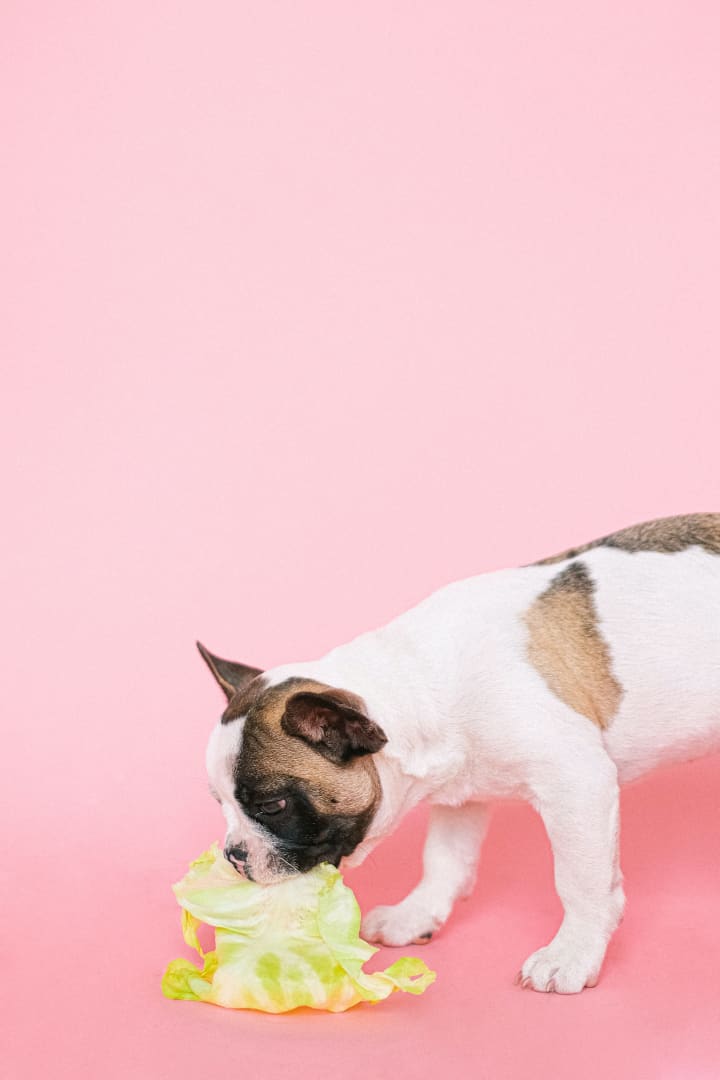How To Raise The Perfect Dog
The First 6 Things To Do With Your Puppy

Having just brought home your adorable little fluff ball, you are wondering what your puppy should learn first.
A puppy must learn basic manners, his name, potty training, and not bite your hands with those sharp teeth. Puppies must learn socialization skills, including how to interact with people and places.
The following are the first six steps to training a puppy, but let's find out when is the best time to begin.
When should I train my puppy?
It's never too early to start training your puppy. Since the moment your puppy was born, he has been learning. Throughout his lifetime, his mom and littermates will teach him life lessons.
Training a puppy isn't about obedience, sitting, or staying. Your dog will be able to learn obedience commands after 16 weeks of age.
You shouldn't wait to start training your puppy... start right away!
Your everyday actions are training your puppy. When a child is this young, obedience isn't the goal. Consider this.
When your puppy jumps on you and you pet him, you are training him that jumping equals attention. Petting your puppy and telling him it's okay when he barks is training him to learn: if I bark, I get petted.
The moment your puppy is born, he starts learning from his mother. Until you take the puppies home, the mamma dog continues to teach them. As soon as you bring your puppy home, you are responsible for teaching him/her puppy manners.
Now is the time to start training your puppy! The following puppy training basics will help you and your puppy start learning today!
Your First 6 Puppy Training Steps
Following are nine puppy training tips to help you get started today:
1. Your puppy’s routine
When you initially bring your puppy home, create a schedule to help them get used to its new environment.
For the first few days, avoid overwhelming your puppy with the entire house. Select a modest location where they may unwind for the first few days or so.
Your dog should be shown where his water, bed, crate, and toys are. Take your puppy outdoors to the location where you want him to relieve himself.
A seamless transition is going to depend heavily on consistency. Feeding, sleeping, and playing should all be consistent.
2. Your puppy’s name
The name you give him will be his lifelong link to you. A name encompasses much more than just that.
A name should compel your dog to look at you and pay attention to you. His name is therefore a command. Regardless of whether it comes, SIT, or something else, the instruction is to "look at me and wait for my next command."
You want to give your puppy's name some value at this point in his development. Give your dog a treat or other positive reinforcement each time you call him by name.
It's rather easy to teach a puppy or dog his name: just call him by name, and as soon as he looks at you, lavish him with praise and/or treats. Take a pause after each repetition, then repeat.
You will observe your puppy reacting to its name in a few days to a week. However, don't end there. Continue to emphasize that its name is a symbol of happiness.
The most effective training tool you have for your dog will be its name. You should load as much value as you can to their name.
Only good circumstances should be invoked when using the name. Do not reprimand improper behavior in his name. Although I am well aware of how challenging this is, I still have difficulties remembering not to tell my dogs NO when using their names.
3. Potty training
Every new puppy parent's priority list includes potty training.
It's critical to realize that an 8-week-old puppy still has some urinary control issues. Be patient, and be prepared for mishaps.
It will save your sanity and perhaps even the life of your dog if you set limits and restrict freedom at this early age.
In addition to helping to provide a safe space for your new puppy, using baby gates, a playpen, and a crate will greatly simplify potty training.
4. Puppy mouthing, biting, and chewing

How to stop a puppy from nipping is one of the most often asked topics by new puppy owners. Those puppy fangs are really painful and very sharp.
Biting and nipping are typical puppy actions. Like a newborn, they use their mouths to explore the environment.
Eventually, your puppy will grow out of this stage if you are consistent in informing her that you do not enjoy being pinched or mouthed.
5. Establish a sense of trust with your dog.
Your puppy has to trust you in order for the two of you to develop a strong bond. If you can't trust someone, you won't want to listen to them, just as in any other human interaction. That also applies to your dog.
How can I establish trust with my dog, you ask? It's easy; just adhere to these 4 pointers to establish a lifetime of trust in your relationships:
1. Be gentle to your dog at all times: This might sound quite elementary, and it is. However, your dog will never trust you if you yell, hit, kick, or push her.
2. Spend some time getting to know your dog: Petting, going on walks, playing, training, and watching TV while cuddling up on the sofa with your dog are all excellent methods to strengthen your relationship.
3. Maintain consistency in your expectations and training: If you are inconsistent, your dog will never know what to expect from you.
4. Be the dog's champion: It is your duty as her dog's parent to defend and safeguard her. Introduce new settings to her gradually until she has the confidence to feel secure. Never place her in tense circumstances where she feels intimidated or vulnerable.
6. Puppy socialization skills

As soon as you can, start exposing your puppy to social situations; this will help your dog develop healthy boundaries. Puppy socialization is recommended between the ages of 3 and 16 weeks, which is a somewhat narrow window.
The goal of puppy socialization goes beyond just ensuring that your dog gets along with other dogs—in fact, it should be the least of your worries.
The goal of socialization is to make your dog at ease in whatever environment he may come across throughout his lifetime. The vacuum, handling of the body, loud noises like fireworks, people of all shapes and colors, other canines, and so many more.
Introduce fresh sights, sounds, and smells to your dog on a regular basis. Avoid overwhelming your new dog by taking things slowly.
Take your puppy to public spaces to expose her to new sights, sounds, and smells, and get to know new people in a variety of settings.
Join a puppy class to help socialize your dog with other puppies. Never take your young puppy to the dog park or introduce her to unfamiliar dogs. Because of how unpredictable these circumstances are, if something goes wrong, it will do more harm than benefit.
What next?
This puppy training manual is intended to help you start off on the right foot with your new dog and teach you the most crucial lessons to educate your puppy straight away. So, get started.
About the Creator
David Johnson
I am thrilled to share my great content on this platform for its readers to have a better experience as they read. With my 4 years of experience, I share I will share stories about your favorite pets for a better relationship with your pets
Enjoyed the story? Support the Creator.
Subscribe for free to receive all their stories in your feed. You could also pledge your support or give them a one-off tip, letting them know you appreciate their work.






Comments
There are no comments for this story
Be the first to respond and start the conversation.